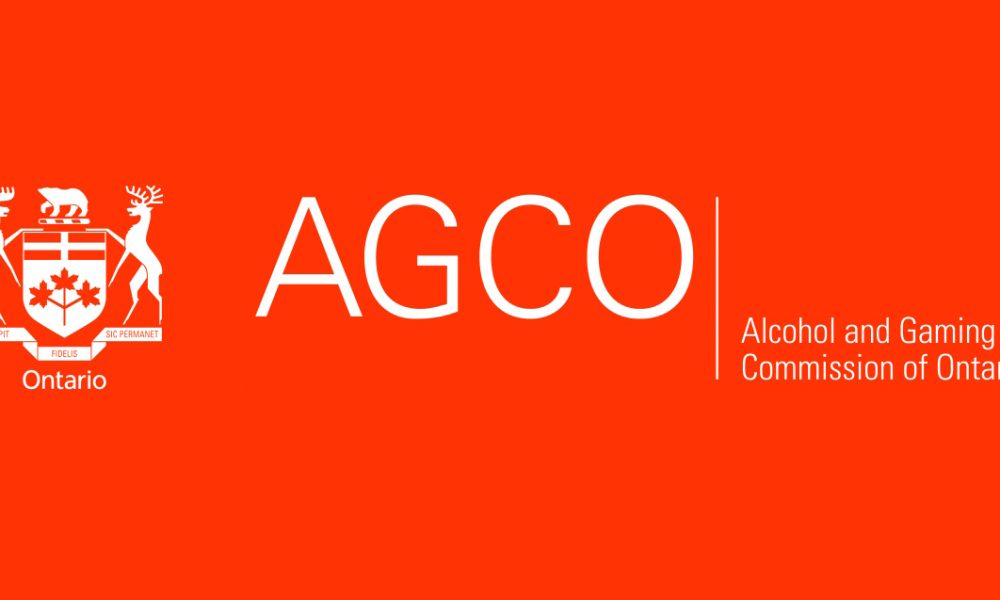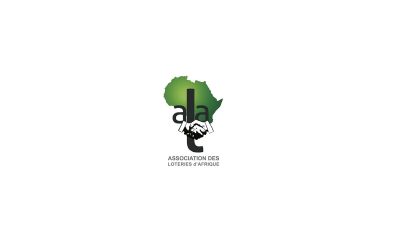Canada
Over 86% of Ontario’s online gamblers play on regulated sites: Study

Two years into Ontario’s open, regulated internet gaming (igaming) market, a new study commissioned by the Alcohol and Gaming Commission of Ontario (AGCO) and iGaming Ontario has found that the vast majority of people participating in igaming in the province are doing so on regulated sites. This represents a significant change from the estimated 70 per cent of online gambling that occurred on unregulated sites before the Government of Ontario established a safer, competitive, and regulated open market for Ontarians in April 2022.
According to an Ipsos study conducted in February 2024, 86.4% of Ontarians who gambled online over the preceding three months gambled on regulated sites. This represents an increase from the 85.3% of igaming participants who reported playing on regulated sites on a similar study conducted in 2023.
In 2022, the Government of Ontario worked with the AGCO and iGaming Ontario to launch an open igaming market that allows eligible private gaming operators, registered with the AGCO and under contract with iGO, to participate in Ontario’s legal gaming market. There are currently 47 registered operators offering 77 regulated sites to Ontarians.
However, despite this significant choice, the study found that a notable portion of Ontario’s igaming participants continue to wager on unregulated sites. The study found that 20.1% of those who had gambled online over the prior three months wagered on a combination of regulated and unregulated sites, while 13.6% did all their betting on unregulated sites. Participants named over 350 unregulated websites they have used, which highlights how many illicit betting options can be accessed by Ontarians and the importance of continued efforts to shift players to Ontario’s safer and legal gaming options.
QUOTES
“Since its launch in April 2022, Ontario’s igaming model has been recognized internationally for championing work to displace the unregulated online gaming market,” said Attorney General Doug Downey. “This made-in-Ontario, regulated market will continue to inspire global innovation, while ensuring a safer landscape for players and businesses alike.”Doug Downey, Attorney General of Ontario
“In Ontario, regulated sites are held to high standards of game integrity, data security and player protections, including having significant responsible gaming safeguards. While it’s encouraging to see most participants are choosing regulated gaming options, those who are not are unfortunately risking far more than their wagers.”Dr. Karin Schnarr, Chief Executive Officer and Registrar, AGCO
“iGaming Ontario joins our operators, government, and AGCO in celebrating our success in attracting Ontarians to the safer, regulated igaming market. We will continue to work in lockstep with the AGCO to enable Ontarians to play with confidence.”Martha Otton, Executive Director, iGaming Ontario
AGCO
AGCO Fines Great Canadian Casino Resort Toronto $350,000 for Serious Regulatory Violations Linked to Impromptu After-Party on Gaming Floor

The Alcohol and Gaming Commission of Ontario (AGCO) has issued monetary penalties totaling $350,000 against Great Canadian Casino Resort Toronto for multiple violations of provincial gaming standards. The penalties follow an impromptu after-party that was permitted to take place in the pre-dawn hours directly on the casino’s gaming floor.
On September 27, 2024, an electronic dance music event attended by thousands of people was hosted in the theatre adjacent to the casino at Great Canadian Casino Resort Toronto. The event was marked by widespread intoxication, disorderly behavior, and numerous criminal and medical incidents – both inside and outside the venue – including alleged assaults, drug overdoses, and acts of public indecency. Although paid duty officers were present, additional police and emergency services were required to manage the situation.
In the midst of this high-risk environment, casino management approved an unscheduled request by the performing artist to host an after-party on the active gaming floor. The artist and more than 400 guests were permitted onto the gaming floor where the artist was allowed to perform amidst operational table games and gaming machines – without any prior risk assessment or planning.
As a result, security personnel were unable to effectively control the casino floor, including witness reports that an attendee was seen climbing onto slot machines. Failure to maintain appropriate control compromises the security, safety, and integrity of the casino floor. Following the conclusion of the event, the operator failed to promptly report these incidents to the AGCO as required.
Based on the findings of its review, the AGCO’s Registrar has issued an Order of Monetary Penalty (OMP) totaling $350,000 against Great Canadian Casino Resort Toronto. These penalties address critical failures in their operations, incident reporting, employee training, and the management of disturbances.
A gaming operator served with an OMP has 15 days to appeal the Registrar’s decision to the Licence Appeal Tribunal (LAT), an adjudicative tribunal that is part of Tribunals Ontario and independent of the AGCO.
“Casino operators have a fundamental duty to control their gaming environment. Great Canadian Casino Resort Toronto’s lapses in this incident compromised the safety of patrons and the security and integrity of the gaming floor,” Dr. Karin Schnarr, Chief Executive Officer and Registrar of AGCO, said.
The post AGCO Fines Great Canadian Casino Resort Toronto $350,000 for Serious Regulatory Violations Linked to Impromptu After-Party on Gaming Floor appeared first on Gaming and Gambling Industry in the Americas.
Canada
IGT and Atlantic Lottery Sign Eight-Year Video Lottery Central System Technology Agreement

International Game Technology PLC announced that its subsidiary, IGT Canada Solutions ULC (hereinafter “IGT”), signed an eight-year agreement with Atlantic Lottery to supply its IntelligenEVO video lottery central system technology across Atlantic Canada. The agreement includes the option for multiple extensions and positions the Atlantic Lottery to become the first World Lottery Association (WLA)-affiliated lottery operator to deploy IGT’s next-generation central management system in a game-to-system (G2S) distributed market.
“By leveraging IGT’s IntelligenEVO technology, Atlantic Lottery will power its video lottery network with the industry’s best-in-class central system and position itself to maximize future contributions to good causes. As an organization that prioritizes system security and exceptional player experiences, Atlantic Lottery believes that IGT’s IntelliegnEVO solution will help generate high player satisfaction and optimal network performance,” said Michael MacKinnon, Atlantic Lottery VP, Product.
“As a long-time supplier to Atlantic Lottery, IGT looks forward to helping the Lottery achieve its growth and player engagement goals with our leading-edge IntelligenEVO video lottery central system. IGT’s IntelligenEVO is a scalable technology for the WLA market that is backed by decades of experience and operator feedback, and maximizes the benefits of real-time data, cloud-based technologies and in-depth analytics,” said David Flinn, IGT SVP Canada, EMEA and LATAM, Gaming Sales.
With peak system security, network availability and responsible gaming functionalities, IntelligenEVO is a reliable, scalable solution that can meet the needs of today and in the future. The solution will accelerate time-to-market and enables the Atlantic Lottery to benefit from the system’s suite of player-focused functionality. The technology’s G2S and open API design optimizes data collection and delivery and will enable Atlantic Lottery to customize their program for evolving player needs.
The post IGT and Atlantic Lottery Sign Eight-Year Video Lottery Central System Technology Agreement appeared first on Gaming and Gambling Industry in the Americas.
BetRivers
NetGaming Goes Live in Ontario with Rush Street Interactive via BetRivers Platform

NetGaming, a fast-growing online casino content supplier, is proud to announce its launch in Ontario with Rush Street Interactive, Inc., a leading online casino and sports betting company in the United States, Canada and Latin America. This strategic collaboration marks a significant milestone for NetGaming as it continues to expand its footprint across regulated North American markets.
As part of the launch, Ontario players on BetRivers can now enjoy a diverse portfolio of NetGaming titles, known for their high-quality graphics, immersive gameplay, and unique themes. Standout games such as Zeus’s Thunderbolt, Bison Gold, and Fireball Inferno are among the first to go live, with additional titles set to follow soon.
This partnership is just the beginning. NetGaming plans to extend its collaboration with Rush Street Interactive into Michigan, New Jersey, Pennsylvania, Delaware, and Mexico over the coming months.
Pallavi Deshmukh, CEO of NetGaming, commented: “We are thrilled to go live with Rush Street Interactive, a powerhouse operator with a strong presence and loyal player base. This launch marks a significant milestone in our
North American expansion strategy and underscores our commitment to delivering exceptional gaming experiences tailored to local player preferences across the region.”
Richard Schwartz, CEO of Rush Street Interactive, commented: “We are pleased to partner with NetGaming to bring innovative, premium games to our players in Ontario. This collaboration aligns with our strategy to offer world-class
entertainment through engaging, action-packed online casino games. We look forward to expanding this partnership into additional regulated markets in the months ahead.”
This strategic partnership highlights both companies’ dedication to providing high- quality, innovative, and responsible entertainment to players in regulated markets.
The post NetGaming Goes Live in Ontario with Rush Street Interactive via BetRivers Platform appeared first on Gaming and Gambling Industry in the Americas.
-

 AGCO6 days ago
AGCO6 days agoAGCO Fines Great Canadian Casino Resort Toronto $350,000 for Serious Regulatory Violations Linked to Impromptu After-Party on Gaming Floor
-

 Africa6 days ago
Africa6 days agoALA Hosted Seminar on Artificial Intelligence and Cybersecurity
-

 Canada6 days ago
Canada6 days agoIGT and Atlantic Lottery Sign Eight-Year Video Lottery Central System Technology Agreement
-

 Africa5 days ago
Africa5 days agoDRC Signs MoU for Public-Private Partnership with Burundi’s East African General Trade Company
-

 Latest News5 days ago
Latest News5 days agoUnlock Top-Tier Deals and Careers: Parimatch joins iGB L!VE 2025
-

 First6 days ago
First6 days agoFIRST and Genius Sports Extend Landmark Data Partnership, Powering Continued Growth
-

 Blokotech6 days ago
Blokotech6 days agoBlokotech unveils Cristian Tonanti as new Casino Partnership Manager
-

 Brazil6 days ago
Brazil6 days agoEsportes da Sorte holds forum on “Integrity in Sports” with Ceará and Náutico
























